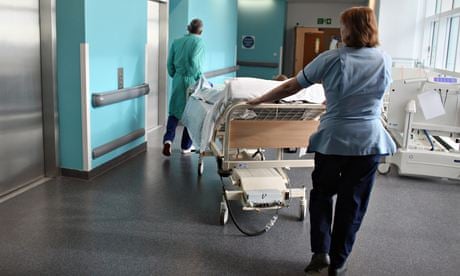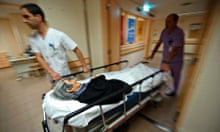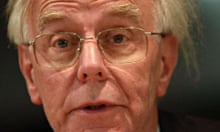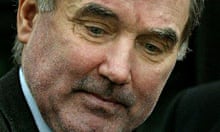The NHS is not spending our tax money effectively. There is a wide professional consensus that too much is being spent on hospital buildings it cannot afford, and it is failing to reduce spending on drug treatments that do not work. But many local NHS leaders are too frightened to try and persuade the public of the case for change. Reforms are delayed for fear of upsetting politicians who seek re-election.
Rationing healthcare treatments to control costs is regarded as an explosive issue in politics. In America, congresswoman Michelle Bachmann stated that the idea of treatment cost being taken into account, and sometimes withheld due to financial reasons, would be a "horrific notion to our nation's doctors".
In contrast to this political rhetoric, in the law courts it is accepted that rationing is part of the healthcare business. The supreme court of the United States approved paying doctors to ration care, saying that there must be "some incentive connecting physician reward with treatment rationing". In the UK, the court of appeal has similarly held that it is lawful for the NHS to ration access to healthcare. Political, not legal, constraints hold back NHS reform and the losers are vulnerable patients who don't get the treatment they need, while money is wasted on hospitals that are not justifiable and services of marginal benefit.
Nigel Lawson observed that "the NHS is the closest thing the English have to a religion". Yet, as with all religions, informed debate is clouded by myths. The first is that the NHS does not have enough money. Spending on the NHS rose sevenfold between 1949 and 2002 (allowing for inflation) and has continued to rise since then. We can never spend "enough" on the NHS because the more we spend, the more demand there will be for healthcare.
Another misconception is that investing in the NHS is the best way to improve the nation's health. This is untrue; around 80% of deaths from the major diseases, such as cancer, are attributable to lifestyle risk factors like smoking or a poor diet. Extra spending on medical treatment for people with preventable diseases is not an effective intervention. The third myth is that the NHS delivers most of its care in hospitals, when in fact 92% of care is carried out by GPs or in the community.
These untrue but commonly held beliefs have made it virtually impossible to have a sensible discussion about what treatments should be funded, and how we should change the footprint of NHS buildings to get better value for money. We have the National Institute for Health and Care Excellence in the UK, and the US has the Patient Centred Outcomes Research Institute. But they are underfunded, dominated by supplier interests, and can only scratch the surface of the rationing debate.
This conversation is essential but it cannot happen unless those who make the decisions locally invest more time, energy and resources in educating the public about the choices that need to be made. Local NHS leaders need to shout loudly that not every cancer drug can be financed, not every small A&E unit should remain open, and many community hospitals are totally uneconomic. It is their job to counter the myths of objectors waving shrouds.
So far, the role of being the "big bad wolf" who cuts A&E or maternity units has been left to faceless managers and the occasional brave public health doctor. But the financial challenges facing the NHS are now both vast and close. There is an urgent need to move services into the community in order to support the growing elderly population. The health service desperately requires unprecedented levels of structural change.
Local commissioners have, by and large, failed at genuine patient engagement, often because it is an afterthought. The traditional NHS way is to make decisions first and consult the public afterwards. This is bad policy, and it leads to bad choices. The public will only believe change is needed if they are trusted with all the data, the options are openly debated at an early stage, and they are repeatedly told that we can only spend the money once. To give credit where it is due, NHS England is trying hard to lead debate but the real conversation needs to happen at a local level. The job of GP commissioners is to be community leaders for change. It means facing the local press and challenging the vested interests, including politicians, who are well-financed and will fight.
If this doesn't happen, elected politicians will oppose clinically required change, and that will slow or prevent reform. The losers will be the frail elderly patients who don't get the services they need, while huge amounts of money are being wasted elsewhere.
Barrister and former Labour party politician David Lock will be delivering a lecture, Health rationing: how do legal and political constraints impede politicians taking necessary decisions?, hosted by the Center for Transnational Legal Studies on 7 April
Join the Healthcare Professionals Network to receive regular emails and exclusive offers.










